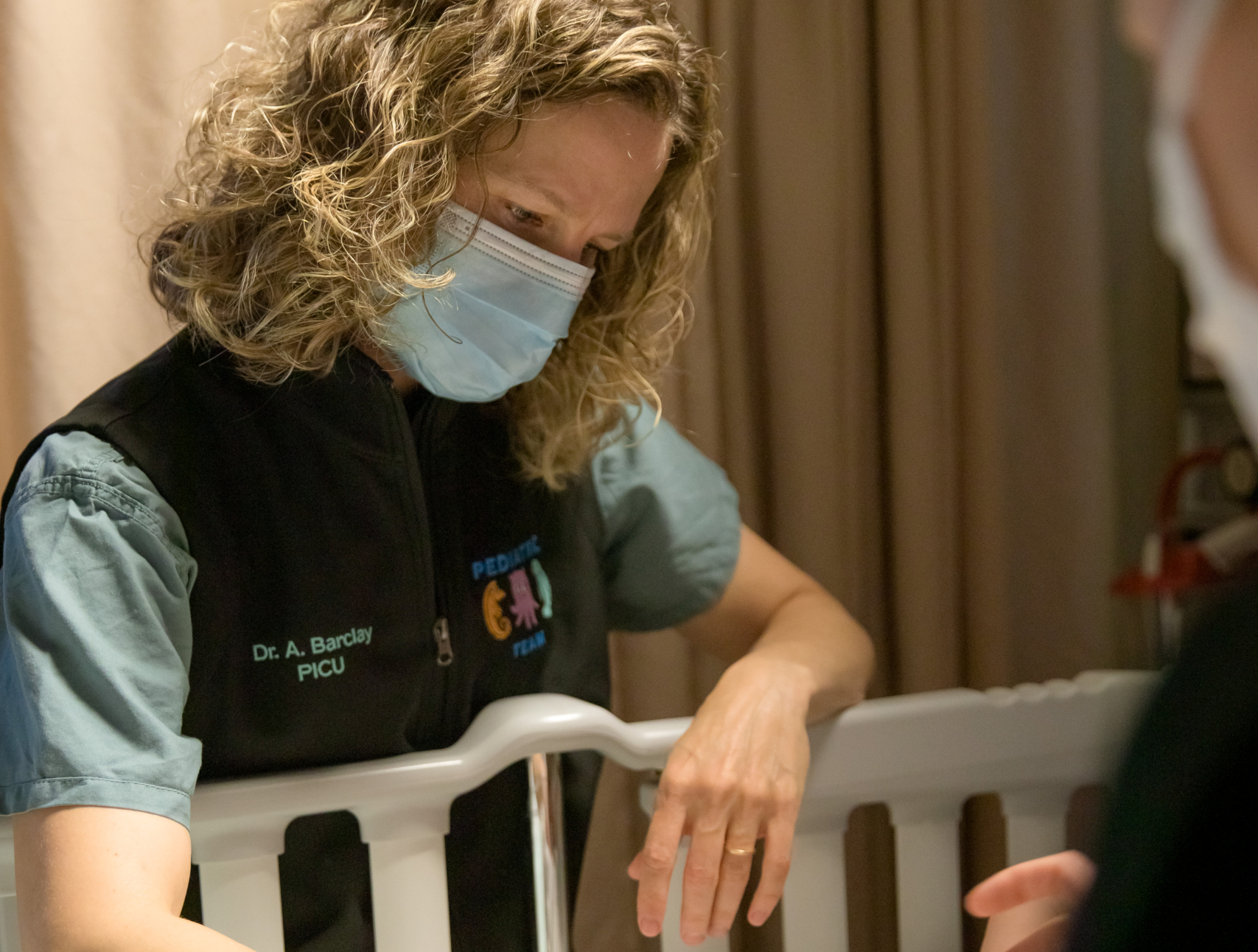Pediatrics: Supporting Families with Kids in Intensive Care
The pediatric intensive care unit (PICU) at Victoria General Hospital provides the highest levels of care for our youngest and most vulnerable patients. For children and their parents, needing care in the PICU can be a stressful and overwhelming experience. During the first wave of the COVID-19 pandemic, PICU patients’ visitors were severely restricted in order to minimize exposure to and spread of the virus. Dr. Amanda Barclay, Director of the PICU at Victoria General, sees the stress on parents and loved ones caused by having a child in intensive care. “Many parents rely on the support of friends and family members to help them through this difficult time,” she says. “With restricted visitation during the first wave, they were asked to shoulder this stress alone while helping to care for their child.”
That’s what motivated Dr. Barclay to participate in a national research study that will explore the unintended consequences and impact of PICU restrictions on family visiting. Victoria General Hospital is one of thirteen hospitals across Canada interviewing families about their PICU experience during the first wave of the pandemic. For Fiona Auld, Clinical Research Nurse Coordinator on the study, it’s all about improving care and experience. “This is a great opportunity to engage with patients and families. Understanding their experiences can help to shape Island Health policy and advance family-centred care as the current pandemic continues, and in case of future pandemics.”
“This is a great opportunity to engage with patients and families. Understanding their experiences can help to shape Island Health policy and advance family-centred care”
Local families will have an opportunity to participate in the study thanks to donations to the Victoria Hospitals Foundation, which has provided funding to enable this research. “We’re truly grateful to the many donors in our community,” says Avery Brohman, Executive Director of the Victoria Hospitals Foundation. “Small but mighty donations to support research can have a big impact for some of our smallest – and equally mighty – patients.”





